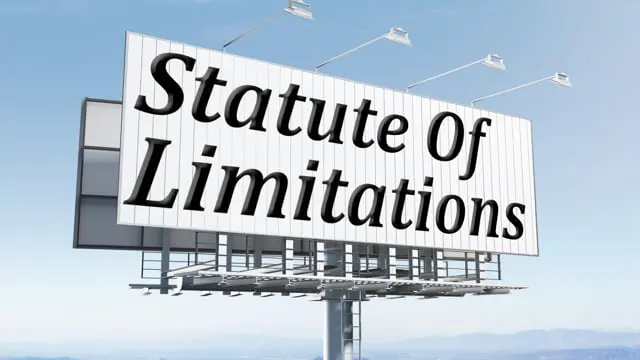There’s a powerful legal technique often used to resolve conflicts without going to court – it’s called mediación. This informative blog post researches into the effective strategies and enfoques jurídicos employed in mediation for resolución de conflictos. Discover how mediación can be a positive y efficient way to resolve disputes and reach mutually agreeable solutions.
Principles of Mediation
Definición y finalidad
To effectively resolve conflicts, mediation is a process where a neutral third party facilitates communication between disputing parties. The purpose is to reach a mutually acceptable agreement, promoting understanding and cooperation.
Beneficios de la mediación
An necessary benefit of mediation is that it allows parties to have control over the outcome, unlike a court decision. Mediation is confidential, efficient, and cost-effective, making it a preferred method for resolving disputes in various legal matters.
Mediation fosters communication and collaboration, preserving relationships and promoting long-term solutions. It encourages parties to openly express their concerns and interests, leading to more creative and tailored resolutions.
Mediation Process
Preparation and Initial Meeting
If you find yourself in a mediation process, it is crucial to come prepared for the initial meeting. Cualquier relevant documentos or information should be organized and readily accessible for discussion.
Identifying Interests and Needs
Preparation and understanding the interests and needs of all parties involved is crucial in mediation. This step helps to uncover underlying issues that need to be addressed for a successful resolution.
To effectively identify interests and needs, the mediator facilitates open communication between the parties. Un must be willing to listen actively and express their concerns honestly.
Generating Options and Reaching an Agreement
Generating options and reaching an agreement entails brainstorming possible solutions that meet the interests and needs of all parties involved. The goal is to find a mutually acceptable resolution that addresses the root causes of the conflict.
Mediator’s Role and Skills
Neutrality and Impartiality
Skills: Unlike judges or arbitrators, a mediator must maintain a neutral and impartial stance throughout the mediation process. This means setting aside personal biases and opinions to facilitate a fair resolution for all parties involved.
Active Listening and Empathy
A build rapport and trust with the conflicting parties, a mediator must demonstrate active listening and empathy. By listening attentively and showing understanding towards each party’s perspective, the mediator can create a safe space for open communication and constructive dialogue.
En is crucial for a mediator to create a supportive environment where emotions can be expressed and acknowledged. Empathy helps in validating each party’s feelings and concerns, paving the way for a more collaborative problem-solving process.
Questioning and Clarifying
Con the use of strategic questioning and clarifying techniques, a mediator can research deeper into the root causes of conflict and help parties articulate their interests and needs effectively. This approach brings clarity to the discussion and assists in reaching mutually beneficial solutions.
Listening actively, showing empathy, and utilizing effective communication techniques are fundamental skills that empower a mediator to guide conflicting parties towards a peaceful resolution, fostering understanding and promoting constructive dialogue.
Retos y limitaciones
Power Imbalance and Cultural Differences
After reaching a mediation table, one of the central challenges is navigating through power imbalances y cultural differences. These factors can significantly impact the dynamics of the negotiation process.
Emotional and Psychological Factors
Differences in emotional y psychological factors can also present hurdles in mediation sessions. These elements can escalate tensions and impede progress if not managed effectively.
- Empathy
- Communication breakdown
- Triggers
Recognizing and addressing these emotional and psychological aspects is crucial for successful conflict resolution.
After recognizing the emotional and psychological factors at play, a mediator can facilitate discussions that acknowledge and address underlying feelings and triggers. Emphasizing empathy and open communication can help navigate these challenges effectively.
- Empathy
- Communication breakdown
- Triggers
A mediator’s ability to understand and manage these emotional and psychological elements can lead to more constructive and positive outcomes in resolving conflicts.
Para terminar
On the whole, “Mediation – Legal Techniques for Conflict Resolution” offers a thorough exploration of mediation as a valuable legal technique for resolving conflicts. Through clear and concise explanations, readers can gain a deeper understanding of the mediation process and its benefits in addressing disputes. As we continue to navigate complex legal landscapes, embracing mediation as a tool for conflict resolution can lead to more efficient and effective outcomes for all parties involved.
PREGUNTAS FRECUENTES
Q: What is Mediation?
A: Mediation is a legal technique for conflict resolution where a neutral third party helps disputing parties reach a mutually acceptable agreement.
Q: How does Mediation differ from other conflict resolution methods?
A: Unlike litigation where a judge makes a decision or arbitration where the arbitrator decides the outcome, in mediation, the parties themselves come up with a solution with the help of the mediator.
Q: What are the benefits of using Mediation for conflict resolution?
A: Mediation is often quicker, less expensive, and less adversarial than traditional legal proceedings. It also allows the parties to maintain control over the outcome and can help preserve relationships.
Type of Attorney and How to Find Them on Attorneys.Media
Mediation is often facilitated by attorneys who specialize in resolución de conflictos, negociacióny administrative law. These professionals possess the skills and knowledge to mediate disputes effectively, helping parties reach mutually agreeable solutions without the need for lengthy litigation.
Finding an Attorney: To find an experienced mediation attorney, visit Abogados.Media and utilize the search functionality to explore profiles of qualified attorneys in your area. Focus on those with expertise in mediation, negotiation, and dispute resolution. You can refine your search by selecting relevant categories such as “Mediation” or “Negotiation.”
Why You Need a Specialist: Specialist attorneys in mediation are crucial because they bring a deep understanding of the legal framework surrounding conflict resolution. They can guide you through the mediation process, ensuring that both parties’ interests are fairly represented and that the settlement reached is legally sound. Their expertise helps in addressing complex issues, fostering communication, and achieving a resolution that satisfies all involved parties.
Steps to Take:
- Search for Attorneys: Start your search on Abogados.Media using keywords such as “mediation attorney” or “conflict resolution lawyer.”
- Review Profiles: Look for attorneys with a strong track record in handling mediation cases. Examine their experience, areas of expertise, and client reviews to ensure they are well-qualified to facilitate your mediation process.
- Contact and Consult: Reach out to a few selected attorneys for consultations. Discuss your specific situation and inquire about their experience with similar cases. This will help you find an attorney who is a good fit for your needs and can effectively guide you through the mediation process.
By following these steps, you can find a competent attorney who can assist in resolving your conflicts through mediation, ensuring a fair and efficient resolution to your disputes.
Attorneys.Media Video Document References
- Is Personal Injury Part of Your Law Practice?
- As an Attorney, How Are You Generating Content for Your Online Presence?
- How Can You Help Potential New Clients Get Their Questions Answered?
- How Do You Differentiate Yourself When Someone Looks Online for Help?
- How Do You Differentiate Yourself as a Criminal Defense Attorney?
- Have You Been Thinking About Video Marketing for Your Law Firm?
- Should Attorneys Use Video Marketing to Attract New Clients?
- What Do Potential Clients See When They Research Your Name Online?
- Cómo puede ayudarle Attorneys.Media








